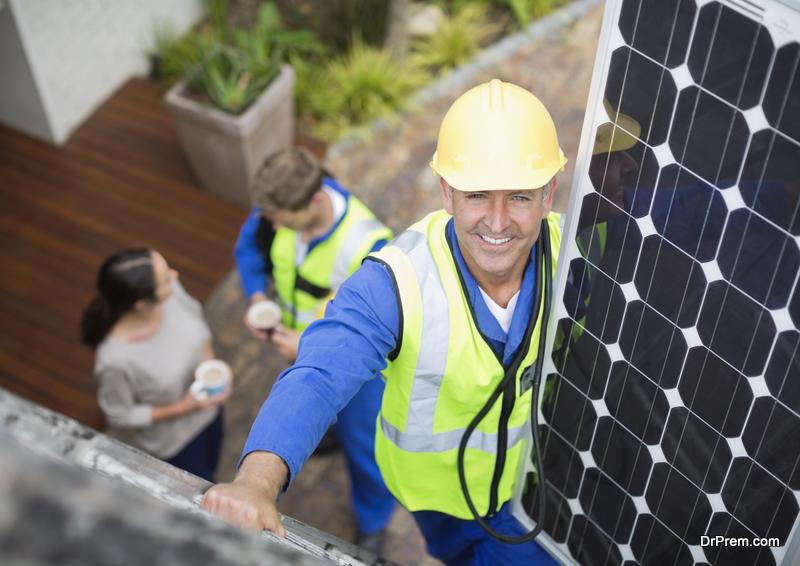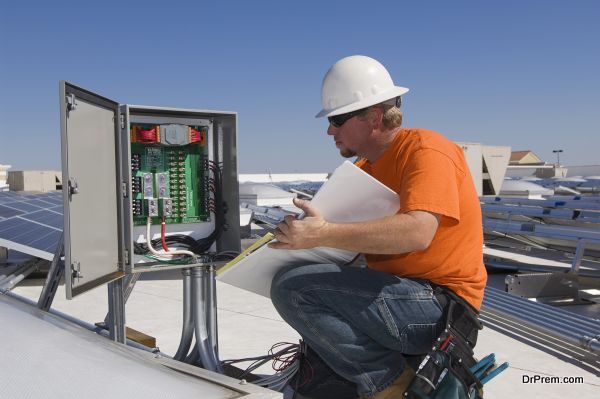Off-grid living presents a compelling vision: a home nestled in nature, sustained by renewable resources, and embodying freedom from traditional utilities. However, this dream, while achievable, doesn’t capture the full complexity of off-grid living. It’s not simply about securing physical necessities; it’s a mindset that embraces challenge, continuous learning, and adaptation.
The payoffs are many: self-reliance, minimal environmental impact, and potential long-term savings. Crucially, thorough preparation is key to a successful off-grid journey.
1. Sustainable Power Sources
Sustainable power is central to off-grid living, with solar, wind, and hydro energy being prime options. Regular solar panel maintenance is crucial for optimizing energy production, particularly in areas abundant with sunshine. Wind and hydro energy are other dependable choices in areas with suitable conditions.
It is also critical to have efficient battery storage and reliable backup power systems. Energy production from renewable sources isn’t always consistent: the sun doesn’t always shine, the wind doesn’t always blow, and water flow can fluctuate. A robust battery system can store excess power for use during these periods, while a backup power source provides an extra layer of security.
2. Water Supply And Management
A reliable water source is an irrefutable cornerstone of off-grid living. Without water, life simply isn’t possible. Whether it’s a nearby stream, a well, or a rainwater collection system, a clean, plentiful supply of water is vital.
Collecting and storing water is one thing, but ensuring it’s safe to use is another. Filtration systems can eliminate potential contaminants, ensuring the water is safe for drinking and cooking. Water storage solutions range from large, underground tanks to smaller, above-ground options, each with its own advantages and considerations.
Conserving water isn’t just environmentally responsible; it’s often essential in an off-grid setting. Practices such as low-flow fixtures, rainwater harvesting, and mindful consumption can make a significant difference in the sustainability of the water supply.
3. Food Production And Preservation
Cultivating a personal food source, be it through gardening or foraging, is a fulfilling component of off-grid living. Gardening provides fresh produce right at the doorstep, while foraging offers an opportunity to connect with the surrounding ecosystem and utilize the bounty it offers.
In some areas, hunting and fishing might supplement the food supply, providing a source of protein. These activities are subject to local regulations and are typically season-dependent, requiring skills and understanding of the local fauna.
Once a food source is established, preservation techniques become invaluable. Canning allows for long-term storage of fruits and vegetables, while smoking and dehydrating can extend the shelf life of meat and fish. These preservation methods help ensure a steady food supply, even during lean times.
4. Shelter And Heating
Off-grid living requires a well-thought-out shelter. Its location, choice of materials, and design significantly influence durability, cost, and environmental impact. Elements such as proximity to water sources, sunlight exposure, and design that maximizes natural light and efficient airflow are key.
Equally crucial is maintaining a comfortable indoor temperature. Heating options range from wood-burning stoves to energy-efficient systems, with insulation playing a vital role in energy efficiency and heat retention. Through methods like double-glazing and proper wall and roof insulation, the energy needed to heat the home can be considerably reduced.
5. Waste Management
Living off-grid also means managing waste effectively. Composting transforms organic waste into nutrient-rich soil for gardening, closing the waste loop in a nourishing way. Recycling is another essential practice, reducing the amount of waste that goes into landfills and promoting resource efficiency.
When it comes to sewage, off-grid solutions can range from composting toilets, which convert human waste into usable compost, to more complex septic systems. The chosen method should adhere to local regulations and consider environmental impact and personal comfort.
6. Communication Tools
While off-grid living often implies solitude, maintaining a connection with the wider community remains important. Reliable communication tools serve as a lifeline in emergencies and a means to stay informed.
Ham radios remain a dependable choice in remote areas, while satellite phones provide connectivity outside of cellular networks. Satellite-based internet is a more robust, albeit pricier, option. The selection of a communication tool should suit personal connectivity needs, location, and budget.
7. First Aid And Medical Supplies
Ensuring health and safety when living off-grid involves having a comprehensive first aid kit. Such a kit should include bandages, antiseptic wipes, tweezers, medical tape, scissors, and specific medications that may be required by individuals. A well-stocked kit could make all the difference when immediate medical attention is necessary.
Apart from the first aid kit, basic medical knowledge becomes an invaluable asset. Understanding how to treat minor injuries, recognizing symptoms of common ailments, and knowing when professional medical help is necessary can be life-saving. Online courses, community classes, and even certain books can provide this essential information.
8. Transportation
Choice of transportation is dependent on the location and the nature of the terrain. Some may require a sturdy vehicle, while others may opt for bicycles or horses for efficiency and sustainability. Ideally, transportation should be reliable, suitable for the terrain, and fuel-efficient.
For fuel-powered transport, safe fuel storage and maintenance are vital, as is basic vehicle upkeep knowledge, such as changing a tire or oil, to prevent minor issues from escalating.
9. Skills And Knowledge
Practical skills are invaluable in off-grid living, from fire-making to navigation, and from identifying edible plants to basic mechanical repairs. These contribute to everyday life and emergency scenarios.
Off-grid living is dynamic, requiring continual learning and adaptation. Keeping up with renewable energy advancements, mastering new food preservation techniques, or understanding local ecosystems all contribute to a more sustainable, rewarding off-grid life.
Final Words
Off-grid living is not about isolation, but fostering unique connections—with nature, sustainable practices, and community, whether that’s local residents or fellow off-gridders. This community often becomes a vital part of the journey, offering shared experiences and wisdom.
Though the shift to an off-grid lifestyle demands determination, the rewards—harmonious living with nature, self-sufficiency, and resilience—make it a fulfilling path worth pursuing.
Article Submitted By Community Writer




